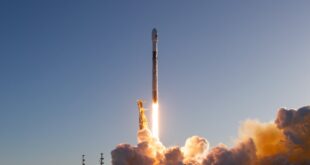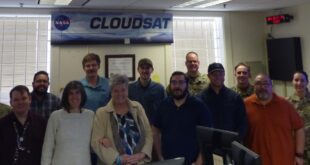
By John B. Sheldon
There will be a new normal.
I can’t tell you when that new normal will be, or what it will look like, but it will happen. Its formation started some weeks ago with the World Health Organisation’s official declaration of a pandemic.
For now the priority is to take on and ultimately eradicate the Coronavirus and its disease, COVID-19, and keep our loved ones, friends, neighbours, and colleagues safe and healthy.
As the weeks and months go on, however, we will need to start giving thought to what this new normal might look like, and how, then, we will rebuild — maybe even start again — once we are through to the other side of this crisis.
If you are a business owner, policy maker, executive, or even a concerned citizen, at some point you will need to think deeply and honestly about all of this. To pretend, wish, or hope that everything will be the same as it was before the pandemic won’t cut it: to do so is not thinking at all.
At present, we are being constantly bombarded with detailed predictions of what will change or become more important once the pandemic passes. It seems to me that these predictions are nothing more than confirmation bias at work: too many people are taking their personal pet rock – whether it’s a particular technology or policy issue – and projecting it as a certain part of our collective future.
There is also a lot of wishful thinking: too many people are confusing what they wish to happen with what actually will take place.
For example, just because you believe that a Green New Deal is necessary to tackle climate change, and that the pandemic and its consequences are an opportunity to implement it, does not mean that months or years from now it will happen. Of course, it is equally possible that a rapid, fossil-fueled economic recovery is also not inevitable.
Just as mistaken is the false certainty that what appears to be true now will be just as true two or more years in the future. Technologies such as virtual reality, for instance, could mature and become more popular in the coming months; but it is also possible that they may revert back to the technological fringes once the pandemic recedes, as people seek out the human-to-human contact they literally crave.
Indeed, if there is one thing that can be predicted with ironclad certainty it is this: the human condition – both good and bad – will not change.
My point here is that nobody knows anything in particular, and while we instinctively understand that the near future will be very different from our immediate past because of the pandemic, we also know the myriad ways in which all aspects of our life unfold and interact during such extraordinary times will, in some important ways, be surprising — and even counterintuitive.
This will apply to our personal, social, political, cultural, and economic lives. The space sector and wider technology sector will be no different.
So, then, if no one knows anything in particular, how can we start thinking about a new normal? And how will we know what we might do in it?
My suggestion is simple: think broadly for now, but pay attention to details throughout the coming months — and even years.
And we can start by acknowledging some broad realities, including the fact that the longer the pandemic and our personal and collective responses to it last, the greater and longer the personal, social, economic, cultural, and political echoes of the crisis will remain over the coming decades.
We can look to history to help us understand that events of this magnitude have a strong tendency to ‘fast forward’ preexisting trends — and not just technological ones. Previous pandemics and major wars throughout history prove this truth.
Dormant or simmering geopolitical tensions can reemerge or boil over; societal, economic, and political (usually all connected) problems and vulnerabilities can be brutally exposed, resulting in quick, radical change; cultural traits that large numbers of people have long been comfortable with are revealed to be inadequate or even dangerous in such times, leading to new practices and thinking.
Similarly, flawed business and economic assumptions, models, and plans, and even inefficient ways of working and cooperating, are mercilessly exposed. What worked well in the space business before the pandemic may not do so once the crisis is over. The market will be different because of new demands and a change in the availability of capital. Business models and plans, and the assumptions that underpin them, will have to change.
It is these broad changes and their echoes that will create the conditions for our new normal.
It is tempting to focus on what many will perceive to be urgent, but the urgent must not crowd out what is important over the long term.
Therefore, while business and policy leaders must acknowledge the broader realities that will create the future context within which commerce and government will have to work, they must also pay attention to the ways in which these realities are unfolding, and resist the instinct to glom on to contingent and temporary trends.
Leaders must understand that the use of technologies are influenced by powerful social and cultural forces which ebb and flow according to fashion, tastes, and – as is the case now – extreme circumstances. What is popular – even necessary – in this moment will be less popular and necessary once people regain confidence to leave their homes, socialize, and travel.
When this current crisis began, some analysts suggested it might be a boon for businesses offering connectivity. But, as of this writing, reports are circulating that OneWeb is filing for bankruptcy, and some predict that SpaceX will have to receive US government support to survive.
Assumptions and fundamentals matter. If you get them wrong, no amount of broader and perceived ‘necessities’ or ‘opportunities’ can save you.
In the coming weeks and months SpaceWatch.Global will provide a platform for a range of experts to offer their views on what the new normal might look like. You should not expect any one of them to be ‘correct’ in their prognostications.
But, if they can challenge your assumptions, make you think broadly, and better intellectually prepare you, your business, and even your government, for what is to come, then they wil have served their purpose.
Wash your hands, practice social distancing, love those you are with, and stay safe.

Dr. John B. Sheldon is the chairman and president of ThorGroup GmbH and co-publisher of SpaceWatch.Global. The views expressed here are his own.
 SpaceWatch.Global An independent perspective on space
SpaceWatch.Global An independent perspective on space




